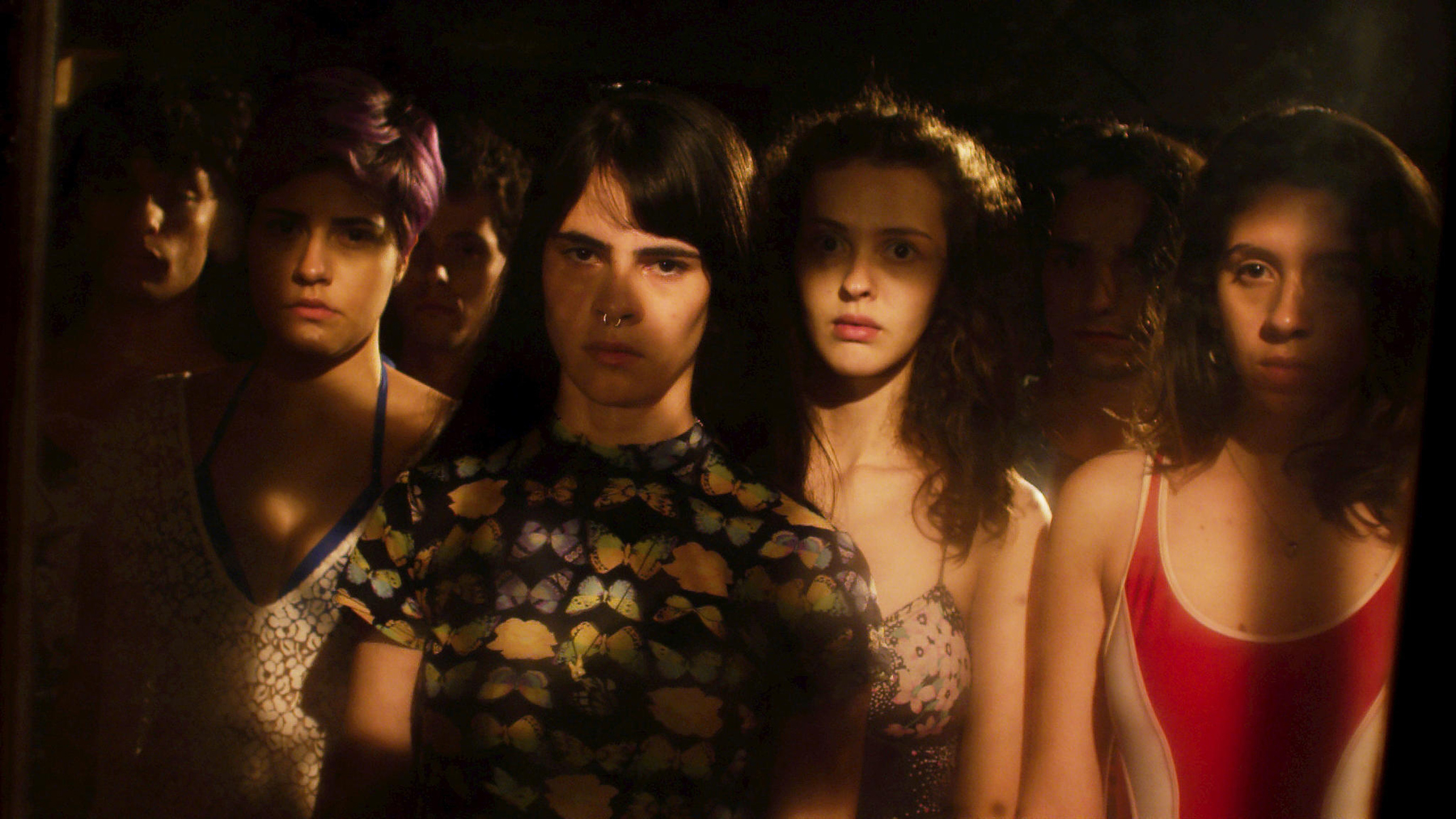
 Director Ramon Porto Mota’s film, The Yellow Night, had its North American premiere at Brooklyn Horror Fest, and I’m really curious to see what the discussion is, once more people see it. The Brazilian film’s only had a couple of festival screenings thus far, and it seems like there’s a lot to unpack around it.
Director Ramon Porto Mota’s film, The Yellow Night, had its North American premiere at Brooklyn Horror Fest, and I’m really curious to see what the discussion is, once more people see it. The Brazilian film’s only had a couple of festival screenings thus far, and it seems like there’s a lot to unpack around it.
“A group of teenagers arrive in the middle of the night to a desolate Brazilian seaside town. High school has just ended and they are ready to party in style, but cell service sucks and, as the days progress, things get very weird. Is time melting, repeating, or going backwards, and did you just see what you think you saw? A tale of friendship and young love for a generation who live through their screens and screen through their lives. Trippy, freaky, angry, and sharply humorous, THE YELLOW NIGHT is a hypnotic millennial nightmare not to be missed.”
Personally, I found The Yellow Night saturated with promise and intriguing ideas, but intensely frustrating in execution. By the end of Mota’s movie, I was certainly entertained, because while Portuguese-language existential dread horror might not exactly be my thing, the director knows how to create a mood that aches with foreboding.

However, that’s where the frustration comes in: it aches, but never really provides any sort of … anything, plot-wise? It’s all build, no release. Think of it like an EDM track with no drop, or a doom song that never gives you the big riff. You can enjoy all the elements of talent and craftsmanship required to create something, but still be dissatisfied with the final product.
The various ideas suggested – locked rooms, quantum mechanics, the never-ending night, technical degradation, and just the plain old post-high school graduation blues combined with what may or may not be shock-value Satanism – never really cohere into any specific idea, but there’s definitely a sense that things are changing in one way or another, even though the viewer might not ever get a specific answer as to exactly what that might be.
The repeated use of Mercenárias’ 1986 song, “Me Perco Nesse Tempo,” definitely points to something. The post-punk song is all edge and jitters, and the title translates to “I get lost in this time,” with the opening lyrics of “ Sometimes I feel/ I have to change/ I think the time/ Always wanted to devour me” point to a grander idea overall than is ever actually explicitly expressed in the film. Using Death’s “Freakin Out” in a scene where the young women of the group smash a bottle over a dude’s head and drive away also helps to ground the film subtextually in a way that the actual script doesn’t seem to.

The performances are pretty solid, and, for a minute, I thought that maybe I might have nightmares later, but nada. It’s basically a collection of dreamy scenes of attractive Brazilian young adults dealing with interpersonal issues and the impending onset of adulthood, while there may or may not be some sort of interdimensional entities trying to fuck with time. I mean, I watch Riverdale every week, so it’s basically that, but in Portuguese. Basically, I dug it? It’s definitely an experience worth having.




